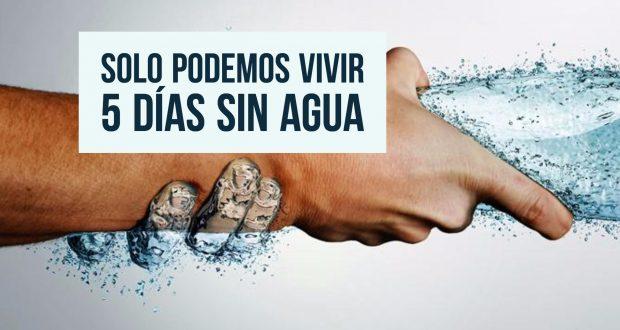How long can our body endure without eating or drinking water?
Eating and drinking water are two vital functions that we cannot stop doing if we want to stay alive and in good health. But what would happen to our bodies if there was a prolonged famine, a natural disaster, a lack of resources, or if for other reasons we stopped eating and drinking? Discover the answers in this note.
In recent years, trends such as intermittent fasting have become popular, but a reasonable limit should be placed on these measures so as not to get sick. Although the body has certain mechanisms to help support the body, these cause unwanted effects on us, which if prolonged can lead to death .
Therefore, do not try to stop eating or drinking for excessive periods. Eat and drink in moderation and in a healthy way. And if you want to review what can happen, consult the opinions of experts and studies on the subject in this note.
How long can a person go without eating?
The amount of time a person can survive without eating can vary based on a number of factors, including body condition and age. The fifth edition of the book Biochemistry, quoted by the newspaper El Español, suggests that a person of about 70 kg. it has enough stored calories to survive between one and three months . Here's what other studies say:
In any case, there is no more exact figure for how many days humans can survive without food, because it is considered unethical to study starvation in human subjects.
What happens to my body if I stop eating?

Under normal circumstances, the body breaks down the food we eat into glucose, which gives us energy. After 8 to 12 hours without eating, glucose stores run out and the body turns to glycogen from the liver and muscles, according to the medical site Healthline.
If this last resource is also depleted, amino acids are used for energy. This affects the muscles and causes a period of starvation of about three days.
To prevent muscle loss, the body begins to use fat stores to create ketones for energy, in a process known as ketosis. If these stored fats are also emptied, it returns to muscle breakdown, which leads to adverse symptoms and ultimately death.
How long can a person go without drinking water?
Under regular conditions, the human body can survive between three and five days without drinking water , with a somewhat longer interval of between two and seven days, according to the portal Doctor Plus.
Also, we must bear in mind that not drinking water under certain extreme conditions can cause death more quickly. For example, if a child is locked in a car on a hot summer day, he will lose his life from dehydration in a matter of hours.
What happens to my body if I stop drinking?
When you deprive your body of water, your water balance is disrupted, that is, you gain less than what you lose through urine, exhalations, sweat and defecation. This is known as dehydration . Once the body loses 2% of body weight in fluid, there is thirst, and the body employs emergency mechanisms such as antidiuretic hormone release.
The action of this hormone, stimulated by the hypothalamus, increases the accumulation of water in the blood and reduces that available for urine synthesis. Simultaneously, the body inhibits sweating, which increases body temperature and thickens the blood; the latter forces the heart rate to increase.
By losing 4% of body weight in fluids , blood pressure drops and fainting occurs. Meanwhile, the cells shrink from losing water, and there is extreme tiredness, difficulty thinking, and a headache.
When 7% of body weight is lost in water , multi-organ failure begins, first in the kidneys, which will cause the accumulation of toxins in the blood. The tissues of various vital organs begin to die and there is a risk of death.
What happens if I stop eating and just drink water?
Consuming a healthy amount of water can help you survive starvation for weeks and even months, according to Healthline. The body, they indicate, has more reserves to supply food than water. A study of hunger strikes argues that people need to consume at least 1.5 liters of water a day to survive starvation any longer.
